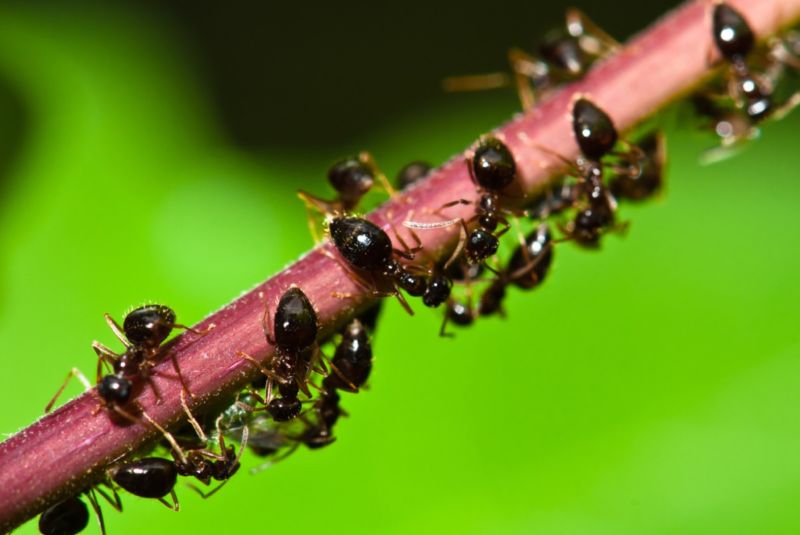
Enlarge / Black ants marching along the stem of a leaf. Unlike humans, ants don't experience traffic jams, even at high densities. (credit: Bosca78/Getty Images)
Ants are notoriously much better than humans at organizing their collective traffic flow when foraging for food, but how they manage to do so isn't fully understood. Even in dense, crowded conditions, ant colonies still manage to maintain a smooth and efficient traffic flow, primarily by adjusting their behavior to adapt to changing circumstances, according to a new paper in the journal eLife.
Ants are a textbook example of collective behavior. A few ants spaced well apart behave like individual ants. But pack enough of them closely together, and they behave more like a single unit, exhibiting both solid and liquid properties. There has been a number of studies over the last decade or so involving the collective behavior of these fascinating insects.
For instance, in 2008, German scientists built a tiny ant motorway in the lab, complete with the equivalent of highway interchanges, so that ants could navigate between their nest and a sugary food source. Then the scientists monitored how the ants quickly found the shortest possible route between the two. You'd expect jams to form near interchanges, as they do on human highways. Instead, whenever a route started to clog, the ants returning to the nest blocked ants traveling in the opposite direction, forcing them to find an alternate route.
No comments:
Post a Comment